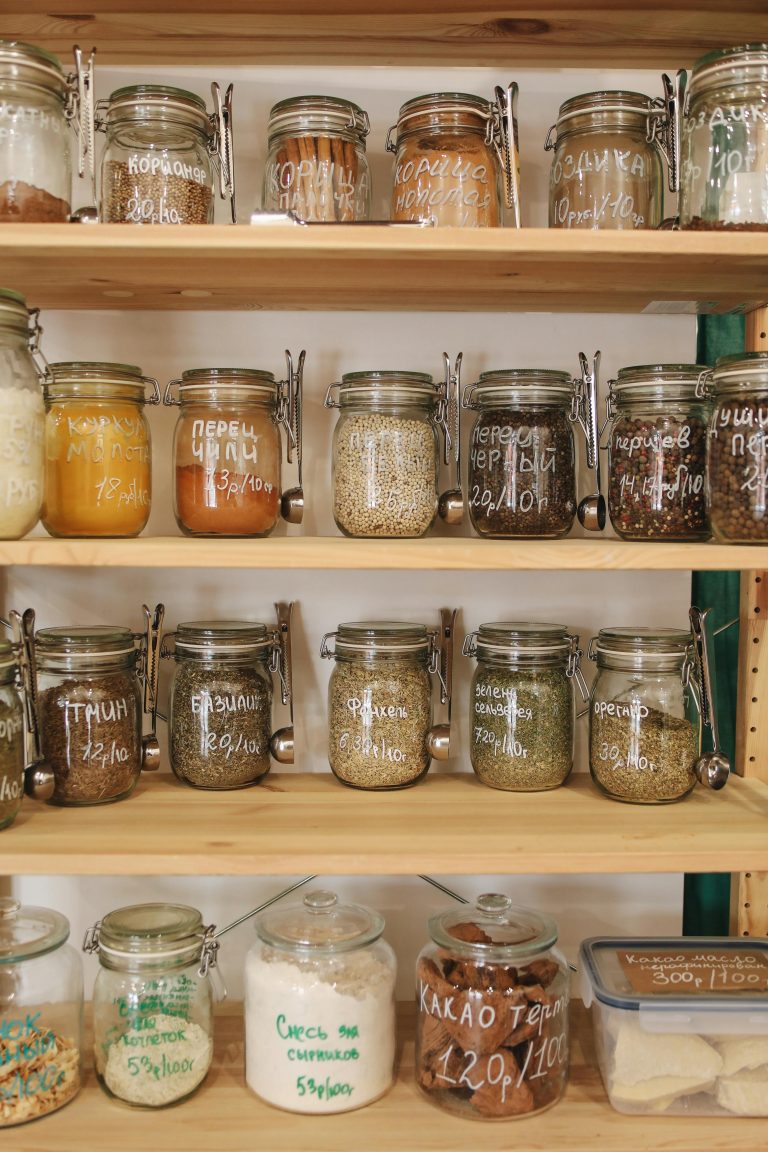The pantry is a cook’s secret weapon. It’s the perfect cool, dry cupboard to store nonperishables and other foods. A well-stocked and organised pantry gives you endless options for breakfast, lunch, and dinner. However, there are a few misconceptions when it comes to deciding which food items you should be storing in the pantry, and which actually do better in the fridge or freezer. While most nonperishables and dry goods can be stored at room temperature, there are a select few that would benefit from cold storage.
Prevent unnecessary food waste and loss of money in the future, and find out which ten items should never be stored in the pantry.
Foods you should never store in the pantry
Just because an item can be stored at room temperature doesn’t mean that it should. Most inconspicuous items stored in the pantry quietly spoil, spread bacterial growth or bugs, and cause waste. The following foods should be stored in a fridge or freezer:
1. Nuts and seeds
Nuts and seeds have high amounts of saturated fats. When they are exposed to light, oxygen and warmer temperatures, they quickly spoil. Unless your pantry is temperature-controlled with limited exposure to light and oxygen, that bag of nuts and seeds won’t last longer than a month or two (at most). Off nuts and seeds develop a sour smell, bitter flavour and an unappealing soft or mealy texture. The fattier the nut, the more temperamental it will be. Consider storing fatty nuts like macadamias, pecans, Brazil nuts, and walnuts in the fridge from the get-go. Otherwise, the best way to store any nuts and seeds is in an airtight container in the fridge.
2. Pure maple syrup
Once opened, a bottle of pure maple syrup can become contaminated with unwanted mould, yeast, and other microorganisms that love to grow in warm and dark environments. Additionally, light and oxygen exposure can cause maple syrup to lose its delicious flavour. Store unopened bottles in the pantry, but relocate opened bottles to the fridge asap.
3. Organic nut butters
Organic nut butters don’t contain any preservatives. This and exposure to oxygen, light and warm temperatures can expedite the growth of mould and cause the fats in the nut butter to go rancid. Once you’ve opened a new bottle, keep it in the fridge.
4. Infused and delicate oils
While olive oil, peanut and canola oils are happily stored in the pantry, infused and more delicate oils cannot. Infused oils, like garlic- or truffle-infused oil, need cold storage to preserve flavour and prevent spoilage. Delicate oils, like nut- and seed-based oils (walnut, flaxseed, and sesame), are susceptible to spoilage when exposed to light, oxygen and warm temperatures.
5. Bread
Storing bread in the pantry is a big no-no. A loaf tucked away can easily be forgotten and cause unnecessary food waste. Instead, keep your bread in a dedicated bread bin on the counter for short-term use. Bread can still mould in a bread tin if not used within a few days. The constant opening and closing of the bag or packaging means changes in temperature and exposure to air filled with microorganisms and mould. Freeze slices for longer storage. However, do not refrigerate as this will only cause moisture loss and rapid staling.
6. Condiments
Condiments, like tomato sauce, mustard and mayonnaise, are perfectly happy to be stored at room temperature in a cosy pantry when they haven’t been opened. Once opened, they need to be relocated to the fridge immediately. If kept in the pantry, these sauces will lose their punchy flavour and silently spoil.
7. Whole wheat flour
Whole wheat flour undergoes less processing, meaning it retains the bran and germ of the wheat kernel, which contain oils. If stored at room temperature, the oils can quickly go rancid and create an off-tasting flour. Not to mention that flour beetles may hatch in the bag and migrate to eat into other food items, potentially causing an infestation and spoiling food throughout your whole pantry. Instead, store flour in an airtight container in the fridge or freezer.
8. Tortillas and rotis
Tortillas and rotis have a high water and fat content, depending on how they’re made. Moisture paired with fat and warm temperatures is the perfect environment for rancidity to take hold and harmful bacteria and microorganisms to grow. Keep them in the fridge for short-term storage (they last about a week or two) and in the freezer for long-term storage (they last up to a month).
9. Cured meats
Although many cured meats, like chorizo and salami, are sold at room temperature, when stored at room temperature, they tend to dry out and are at high risk of turning rancid (due to their high fat content) when opened. Always refrigerate opened cured meats to prevent rancidity and mould growth.
10. Non-food items
Turn your pantry into a strictly food zone. Once you store food with non-food items like cleaning materials, batteries, linens, towels, and even pet food, you increase the risk of cross-contamination. Pet food odours can permeate ingredients (cat-food flavoured oats, anyone?) and attract pests. Linens and towels will attract moths and unwanted guests that will quickly move into devouring food items or worse (using them as a breeding den). Cleaning materials and batteries pose chemical exposure risks, which, in severe cases, may be fatal. Create separate storage spaces for pet items, linens and towels, cleaning materials, and batteries to stay safe.

